'Although Al Boum Photo has won two Gold Cups, he's not a top-class jumper'
Henrietta Knight shares more great insight as part of our special reader Q&A
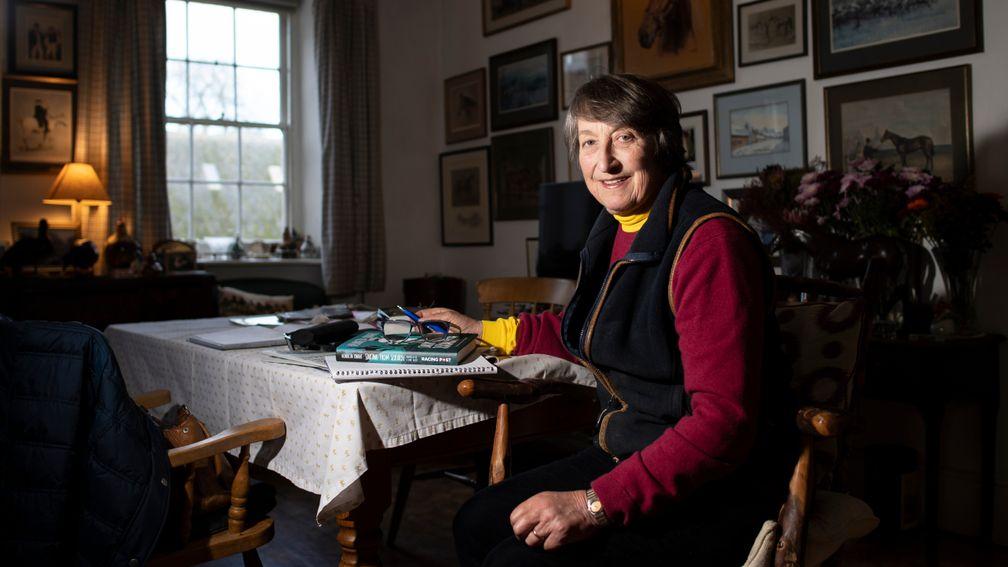
We recently invited readers to put their questions to Henrietta Knight, a legend of the training and bloodstock worlds and a best-selling author, in a special Ask Hen Q&A.
The response we had from our readers was phenomenal – another big thank you to everyone who contributed – and Henrietta has answered the best of the rest in part two below. You can read part one here.
Who is the most promising chaser going in to next season? Wayne Butcher
I'll give two answers. For an established chaser, I like Lostintranslation considering he came back with such a promising run in the Gold Cup after having had time off for a wind operation. For a younger horse going chasing for the first time, I am excited by Envoi Allen but I also like Chantry House from Nicky Henderson's yard.
Envoi Allen is obviously outstanding and has won a point-to-point – he hasn't done anything wrong so far. I was impressed with Chantry House when I saw him run at Newbury, and I thought he ran a very good race to be third in the Supreme Novices' because he probably wants further. He, too, won a point-to-point in Ireland.
The dark horse for next season could be the Paul Nicholls-trained Topofthegame, who looked exciting when beating Santini in the 2019 RSA Chase. He's had a year off, but if 100 per cent he could be anything.
Would you bring back the three-month summer break for jump racing? Rosamund Goodey
I don't know about three months, but there should be a break – for jockeys, for staff, for trainers and for racecourses, and perhaps a good time would be July and August when the ground is habitually firm. Currently the break has brought itself about by the coronavirus but unfortunately a number of the smaller trainers are finding it difficult to make ends meet with no racing and nowhere to target their horses. These trainers depend upon having horses during the summer months to fill their stables and give them some income. Wages have to be paid and overheads are invariably high. It certainly would be good to have a break for those employed in the industry, but it may not be practical due to the economic crisis.
Of the novice hurdlers from this season, who are you most looking forward to seeing over fences next season? Chris Shephard
Envoi Allen, Chantry House and Shishkin. They all appear to be good jumpers. They have all won point-to-points in Ireland and have class. They appear to have the right attitude for racing.
Next year Al Boum Photo goes for three in a row. Do you see any similarities between him and the great Best Mate? Joe Smith
Not many. He's a totally different horse to look at in conformation. He has a relatively short neck, not a great shoulder and, to me, even though he's won two Gold Cups, he's not a top-class jumper. Indeed, due to his conformation, he must be quite difficult for the jockey to sit into because there cannot be much in front of him. Best Mate had a massive front and a great shoulder. However, Al Boum Photo appears to have a great attitude to racing and that is very important. He produces the goods on the day – Best Mate was the same. But overall, the two horses are very different types. Interestingly, Willie Mullins seems to be campaigning Al Boum Photo in a similar way to what I did with Best Mate – he barely ever runs him!
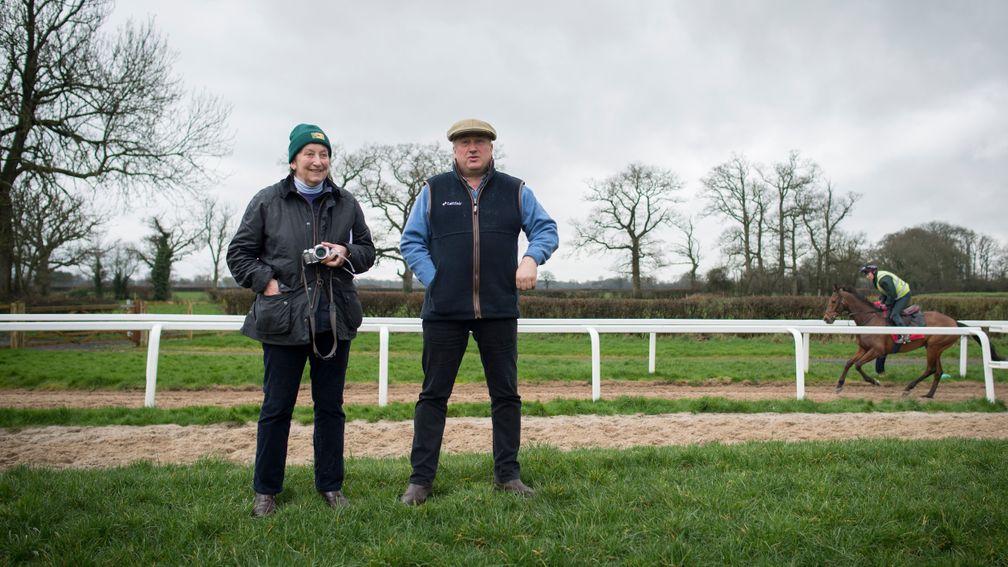
Do you think Impek could have been a Cheltenham Festival winner if the ground had ever come up soft? Rob Walsh
Impek was second in the Arkle in 2003 and third in the Ryanair Chase in 2006, but he wasn't at his best at Cheltenham because he was a very sensitive horse to atmosphere. The whole thing got to him and he was always difficult at the start. I remember going down to the start with one of the officials on a quad bike when AP [McCoy] rode him in the Ryanair in 2006 and he actually dropped his jockey at the start before he got to the tapes. Impek got extremely wound up before all his races and he had to jump off well with a good start to settle him and put him in the right mood. His best race was when he won the Old Roan Chase at Liverpool with Timmy Murphy – that was a super run. His last ever run in the Haldon Gold Cup in 2006, which he won but also sadly fractured a small bone in his leg, was an excellent performance. He was a very good horse, even though he was temperamental; when he first came to us at West Lockinge Farm we couldn't even get him out of the yard. His bare form doesn't truly reflect his ability, but to sum up he was probably not a Cheltenham Festival winner.
Would you like to have seen Best Mate run at Punchestown? Shay Mahon
In many ways yes, because I love the place. But Best Mate always needed a break after his Gold Cups, and the Punchestown festival comes late in the season. Many horses have already started their holidays by then. The Irish racegoers always enjoyed seeing him and gave him great receptions on the occasions we took him to Leopardstown.
What do you think the future holds for steeplechasing in Britain? Tony Wells
This is a tricky one. The future of National Hunt racing in the UK is uncertain, due largely to the increase of welfare issues and insufficient prize-money, while the programme book tends to be unimaginative and on many occasions doesn't cater for the top horses, which are the ones the public love to see at the big meetings. The races are badly spaced out and many of them come too close together to give the horses enough time to recover. Nevertheless, there are some outstanding horses in the game and the breeding industry is thriving. But who can afford to run a horse in a bumper race for prize-money below £2,000? The animal rights movement has undoubtedly gathered momentum in recent years and welfare issues need to be addressed by people who are experienced with horses and animals. Too often, one feels that they are dealt with by people in authority sitting in front of a desk yet knowing little about training and basic horse management.
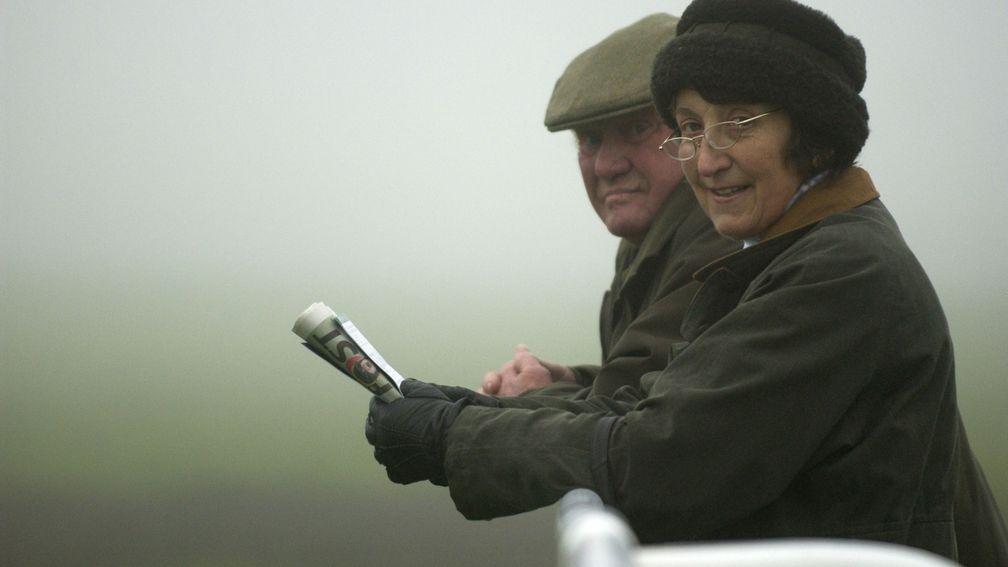
Do you think it is important for National Hunt horses to have a strong grounding in flat work and jumping poles before they begin their careers? Does it have an impact on their likelihood of falling? Samantha Martin
I am a strong believer that all National Hunt horses should have a good grounding before their careers begin. Flat work and jumping poles is undoubtedly beneficial to the development of the correct muscles, in the same way top gymnasts and athletes start practising very early in life. Many of the French horses jump as two-year-olds and this gives them a great start to National Hunt racing. Whether early jumping tuition has an impact on the likelihood of a horse falling in a race is anybody's guess – some horses are complete naturals and some horses will always find jumping difficult. Even Arkle made jumping errors. It was bad enough trying to learn to jump myself at school and competing in a hurdle race on school sports day alongside the likes of Ann Packer (my house captain) was always frustrating. I was useless and could only produce decent results in the sack race!
How good was Jim Culloty with your stable? Brendan Galavan
Jim Culloty was a loyal member of our team and he listened implicitly to Terry [Biddlecombe, late husband], not only at home but also on the racecourse. However, his stable management and common sense with horses were often questionable. Fortunately, he took my bollockings on the chin and seldom disagreed. But when racing he had an excellent attitude, and was laid-back and ice cool on the big occasions.
It's difficult enough to win one Gold Cup, let alone three. Best Mate appeared to be remarkably sound – was it always the case? Patrick Calvert
Best Mate was fantastically sound leg-wise, and never had any wind issues. In fact, he was the perfect horse to train. But in the autumn of 2003, he must have got cast in his stable one night and the next morning he had blood all over his face. He fractured two bones and damaged his sinuses. It was a real scare as he was extremely stiff and bruised for three weeks. We didn't ride him during that time and often wondered whether he would come right due to him injuring his sciatic nerve in his hind-quarters.
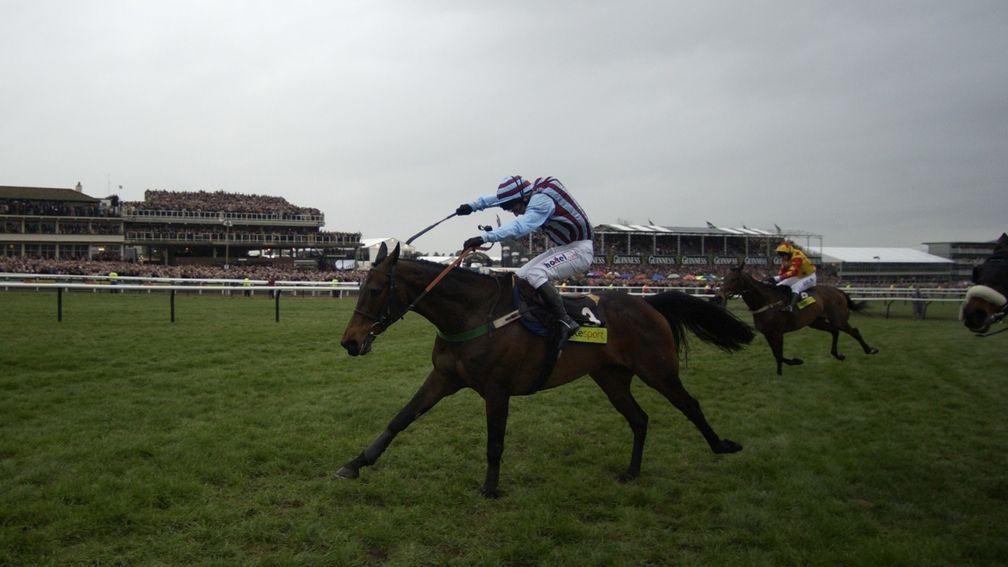
Racing Post Bloodstock podcast: Top Lot featuring Henrietta Knight
Did you and Jim Lewis ever make up? Ian Lake
After Best Mate died and Edredon Bleu and Impek were retired, it was hurtful when Jim Lewis removed the remaining horses from West Lockinge Farm and sent them to Paul Nicholls' yard. I felt that we had done everything possible to ensure that his horses were successful – three Gold Cups, two King Georges, one Champion Chase, one Lexus Chase and one Clonmel Oil Chase. Thus, it was a surprise to see the Aston Villa colours leaving my establishment. I don't have many grudges but I never felt my relationship with Jim was the same after the incident. We continued to speak on occasions, but usually on different matters. I think I will always remain somewhat bitter. Loyalty is paramount in life, and Terry never liked owners who kept moving their horses from one trainer to another. He quite often told them what he thought of them! However, in the Jim Lewis case, I now know that he had partners in his horses and that may have been a factor in moving them to another trainer when I was winding down my operation.
If you could choose one jockey from the past or present to be your ideal stable jockey, who would you choose in terms of work ethic, commitment and, of course, race-riding? Alan Morris
This is a difficult question. Many of the top jockeys are brilliant riders on a racecourse but would not be ideal as stable jockeys. Leading jockeys have a great work ethic and are driven to ride more and more winners, but some of them are less adaptable when it comes to day-to-day work at home, and in particular with the schooling of young horses. Race-riding is first and foremost in their minds and many do not have the patience to spend hours in trainers' yards. A stable jockey has to be in a special mould. Extremely loyal to his trainer and totally committed to the yard for which he rides. He must also be liked by members of staff and owners. Richard Johnson and Philip Hobbs are a prime example of a good stable jockey-trainer relationship, as indeed was Graham Thorner with Tim Forster. Nicky Henderson considers that Mick Fitzgerald was a superb stable jockey. If I was training again and had to choose, I would pick Brendan Powell jnr as my stable jockey. He is able to ride horses of widely different abilities and he was brought up the right way – riding and jumping ponies from a young age and then pony racing. He set out on his career under the watchful eye of his father Brendan snr, who still gives him advice and was a top National Hunt jockey himself, in particular when he won the Grand National in 1988 on Rhyme 'n' Reason. He also won two Scottish Grand Nationals and two Midland Nationals. Brendan jnr has a great understanding of horses and is cool in his races, as well as possessing a sense of humour. He is a jockey with whom, if employed as a stable jockey, I would be able to discuss horses. Another National Hunt rider whom I believe would be an excellent stable jockey is Johnny Burke. He already visits me to school horses on a regular basis and is another experienced horseman.
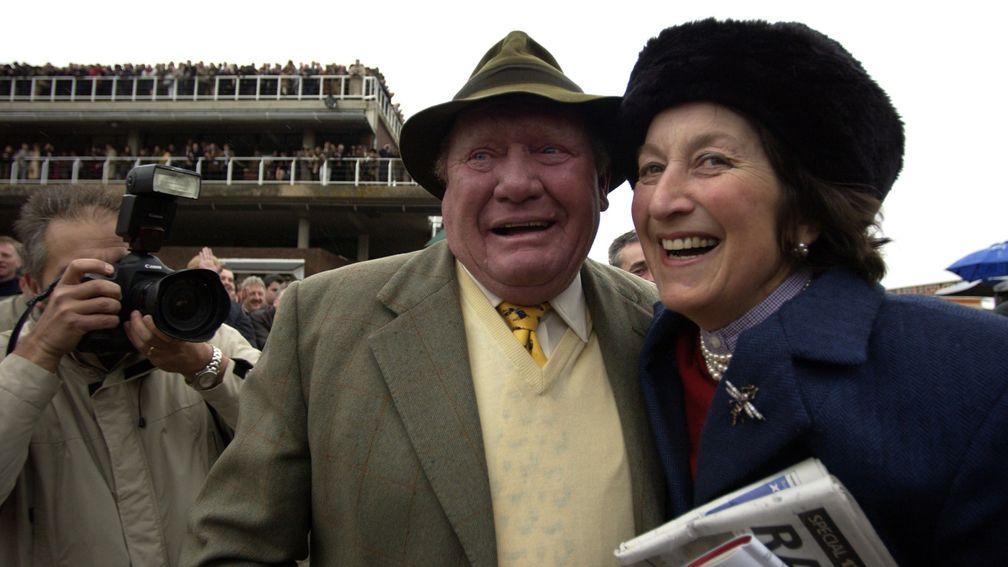
Who did Terry think was the best jockey riding today? Mark Cramphorn
Terry was always obsessed with AP McCoy. In his eyes, The Champ could do no wrong. They were on the same wavelength. Terry used to say, 'AP is very like me – he's driven to ride winners.' However, I'm not sure that Terry's lifestyle was altogether similar to that of AP's – what with the booze and the women, especially as AP is teetotal! In his last years, when confined to the house and watching a lot of racing on the television, Terry was impressed by Brian Hughes and singled him out as a top rider. How right he was, since Brian is now champion jockey.
Do you think connections of Altior should try him in the King George given your own success with Edredon Bleu? He has not been given the chance to prove he could stay the easy three miles at Kempton and with his class I think it would be right up his street. Why and when did you decide to run Edredon in the race? Bill Stevely
No – if I trained Altior I wouldn't run him in the King George. He's exceptionally good at two miles, so why change a winning formula? I know that some of his connections believe that he needs further than two miles but his race at Ascot against Cyrname was a disaster and could not have done him any good. The ground conditions were against him and it was his first attempt at a longer trip. It also came very early in the season when he was not fully wound-up. If he was mine, I'd give him the Best Mate treatment, wrap him up in cotton wool and aim him every year at the Champion Chase. Edredon Bleu was coming towards the end of his career when we ran him at Kempton. He had proved he could stay two and a half miles, in particular when he ran over hurdles, and Terry always believed three miles was within his grasp. Kempton is an easy three miles, and although he didn't show up in the race the first year we ran him, he didn't have things his own way and he couldn't dominate. He was a brave, tough horse and a superlative jumper who loved to race from the front, but despite winning a Champion Chase he always worked like a stayer at home. He didn't have the class of Altior but was a brilliant little horse to train.
Do you think Best Mate could have been a five-time festival winner? With a bit of luck he wins the Supreme and without the cancellation due to foot and mouth he would have been the Arkle favourite.Thomas Burns
Yes. I think he should have won the Supreme. While not liking to criticise jockeys, it was not Jim Culloty's finest hour and Best Mate had to make up a lot of ground and they went very wide. It was unfortunate that Cheltenham was abandoned in 2001 – the horse was odds-on for the Arkle and very few rivals of our horse's calibre had shown up that season. I would like to think he would have won the Arkle.
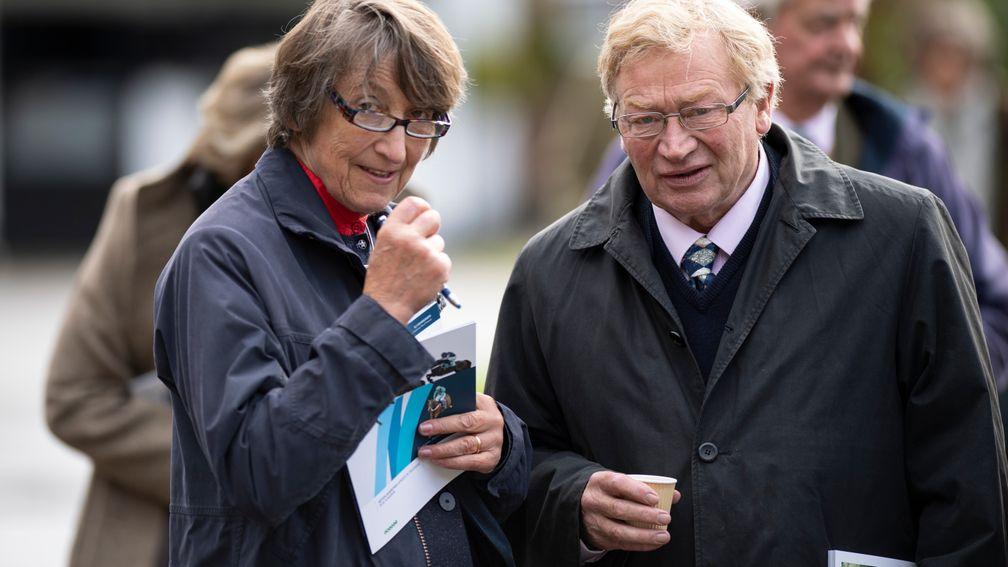
I remember sitting eating my pie and chips in the old Starting Gate cafe at Doncaster on a dreary Monday afternoon. I looked across to see you doing much the same! I wondered, aside from the obvious courses (Cheltenham) where you enjoyed so much success, which are your favourite jumps courses?Chris O'Dowd
There are a number of racecourses that I favoured during my training days, and quite a few that I disliked as well. Exeter holds bittersweet memories. It's a fair track and usually has good ground. It's the ideal starting place for a novice chaser. Best Mate won three races at Exeter, but then tragically died there. I also have a soft spot for Bangor – I trained my first winner there in 1989. It's a good jumping track with excellent facilities for owners and the officials are extremely helpful to trainers. The same applies to Fontwell – terrific groundsmen in my day and a wonderful atmosphere. I was often lucky there. Of the Grade 1 tracks, Sandown and Ascot are my two favourites. Magnificent courses and a privilege to win on them. My least favourite course is Chepstow. I've never trusted the ground and the redesigned layout since the 1990s means that the course has lost a lot of its character. The old paddock and old saddling boxes were great. I never had much luck at Plumpton and do not particularly like the course, despite the work of its management. Finally, as far as Worcester is concerned, that to me is the very worst nowadays. The ground is inconsistent – it is often flooded in the winter – while the fences are stiff and uninviting and at the plastic hurdles horses take liberties. The facilities for owners at Worcester are appalling. In the modern age, the treatment of owners is paramount on racecourses.
Read this next:
How Henrietta Knight spurred the Tizzards into taking the next step
Henrietta Knight stuns Cheltenham as £450,000 buy gives new trainer dream start
Henrietta Knight reveals the familiar name behind her sales-topping exploits
Keep up to date on the must-have news, tips, photos and more by following the Racing Post across all social channels
Published on inFeatures
Last updated
- Top racing books of 2024: must-reads of the year, from the perfect Christmas stocking filler to a pioneering jockey
- Captain Marvel: how a modern master of Cheltenham and a genuine pioneer executed one of the shocks of the year
- 'We’re delighted with how it's going' - joint-trainers prepare for exciting year after Flat string is doubled
- 'We’ve had to work hard this sales season' - Kennet Valley seeking to build on success with biggest string
- Alastair Down's archives: the great writer recalls Coneygree's glorious victory in the 2015 Cheltenham Gold Cup
- Top racing books of 2024: must-reads of the year, from the perfect Christmas stocking filler to a pioneering jockey
- Captain Marvel: how a modern master of Cheltenham and a genuine pioneer executed one of the shocks of the year
- 'We’re delighted with how it's going' - joint-trainers prepare for exciting year after Flat string is doubled
- 'We’ve had to work hard this sales season' - Kennet Valley seeking to build on success with biggest string
- Alastair Down's archives: the great writer recalls Coneygree's glorious victory in the 2015 Cheltenham Gold Cup